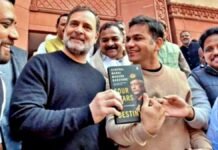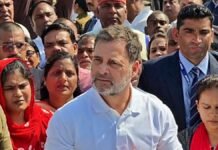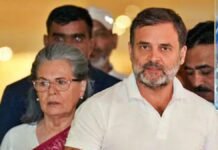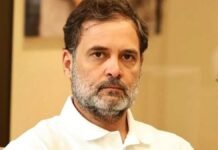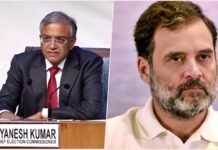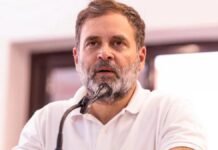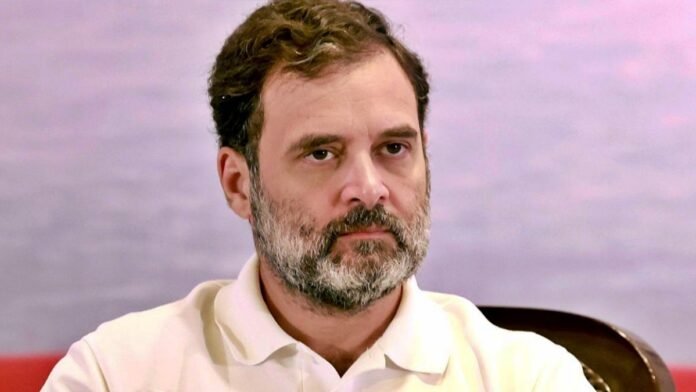
Key Points
- Four-nation tour launched on September 27, 2025, with confirmed visits to Brazil and Colombia, plus two other undisclosed South American countries
- High-level meetings scheduled with presidents and senior political leaders to strengthen democratic and strategic partnerships
- Business engagement focused on exploring new trade opportunities as India diversifies partnerships amid US tariff challenges
- Historical significance emphasized by Congress as continuation of Non-Aligned Movement and Global South solidarity traditions
- BJP criticism emerges over timing of visit following recent arrest of activist Sonam Wangchuk
New Delhi: Leader of Opposition Rahul Gandhi embarked on a comprehensive four-nation South American tour on September 27, 2025, marking a significant diplomatic initiative aimed at strengthening India’s ties with Global South nations. Congress media chief Pawan Khera announced the visit through social media, confirming that Gandhi will engage with political leaders, university students, and business community representatives across four countries, though only Brazil and Colombia have been officially disclosed.
This marks Gandhi’s first overseas visit in September 2025 and represents a continuation of his international outreach efforts following his earlier trip to the United States in April, where he addressed the Indian diaspora in Boston. The tour comes at a critical juncture as India seeks to diversify its global partnerships and strengthen South-South cooperation mechanisms.
Presidential-Level Diplomatic Engagement
During his South American tour, Gandhi is scheduled to hold high-level meetings with presidents and senior political leaders across multiple countries to strengthen democratic cooperation and strategic partnerships. The Congress party has emphasized that these interactions will focus on deepening bilateral relations and advancing shared democratic values between India and South American nations.
The diplomatic component of the visit includes formal engagements designed to reinforce India’s commitment to multilateral cooperation and the principles of the Non-Aligned Movement, which historically connected India with South American countries during the Cold War era. Gandhi’s role as Leader of Opposition provides a unique platform for people-to-people diplomacy that complements official government channels.
Educational and Youth Outreach
A significant portion of Gandhi’s itinerary involves extensive interactions with university students in Brazil, Colombia, and other countries on the tour. These academic engagements are designed to foster dialogue with the next generation of global leaders and strengthen educational partnerships between Indian and South American institutions.
The student interactions will likely focus on shared challenges facing young democracies, including climate change, technological innovation, and sustainable development goals. Gandhi’s educational background and experience in youth politics position him to engage meaningfully with university communities across the region.
Economic Partnership Exploration
Gandhi will meet with business leaders and representatives from various industries to explore new economic opportunities as India seeks to diversify its trade relationships. The business component of the visit comes against the backdrop of ongoing global trade tensions, including US tariffs that have prompted India to seek alternative partnership arrangements.
The economic discussions will likely cover sectors such as renewable energy, technology transfer, agricultural cooperation, and sustainable development projects where India and South American countries share complementary strengths. These meetings aim to open new avenues for cooperation in trade, technology, and sustainability initiatives.
Historical and Strategic Context
The Congress party has described Gandhi’s visit as carrying “historical resonance,” emphasizing that India and South America have maintained long-standing bonds through the Non-Aligned Movement, Global South solidarity, and commitment to a multipolar world order. The tour represents a strategic effort to revitalize these historical connections while opening new channels for contemporary cooperation.
This diplomatic initiative underscores the evolving role of India’s democratic opposition in shaping international partnerships and advancing the country’s global presence beyond traditional government-to-government channels. The visit aims to demonstrate India’s continued commitment to South-South cooperation principles and multilateral engagement strategies.
Political Reactions and Timing
The timing of Gandhi’s South American tour has drawn criticism from the Bharatiya Janata Party (BJP), particularly given its coincidence with the arrest of climate activist Sonam Wangchuk under the National Security Act in Ladakh. BJP leaders have previously criticized Gandhi’s foreign trips, with IT cell chief Amit Malviya questioning his earlier visit to Malaysia in September 2025.
Despite political criticism, the Congress party maintains that international engagement remains crucial for India’s diplomatic interests and that opposition leaders play an important role in strengthening bilateral relationships through parliamentary diplomacy. The party has not disclosed the duration of Gandhi’s current South American tour or provided detailed itineraries for security reasons.



































